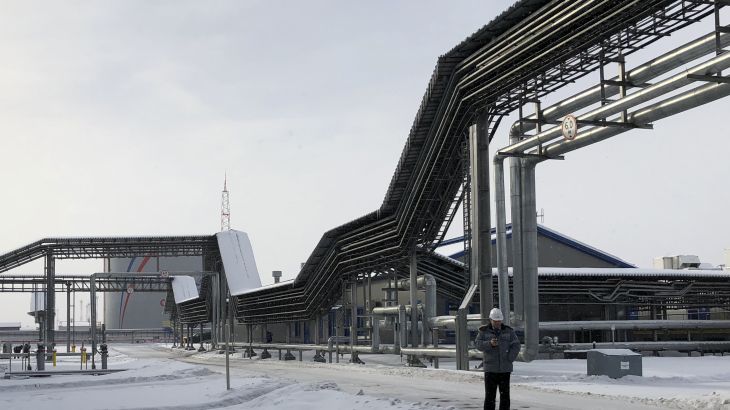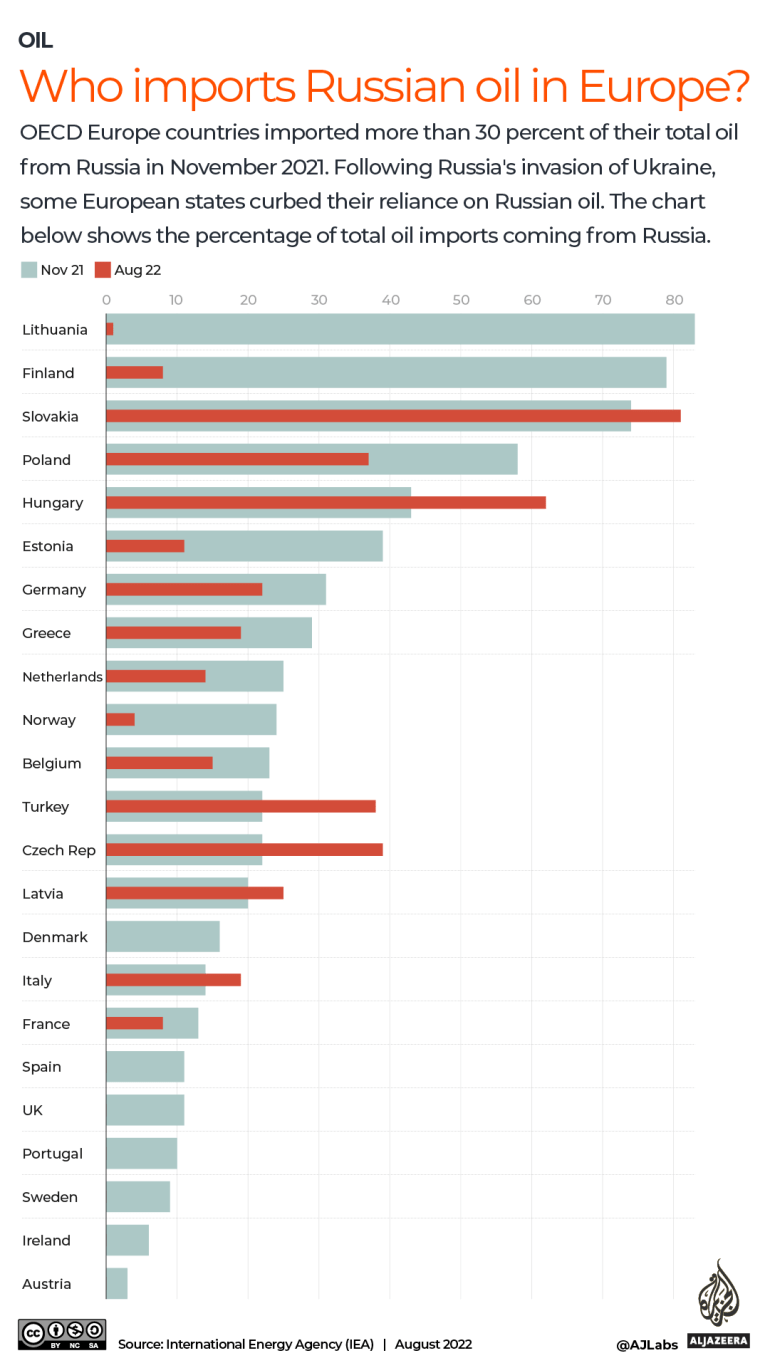Russia bans oil sales to nations, firms complying with price cap
Moscow’s response to the Western price cap is to stop supplying crude oil and oil products from February 1.

Russian President Vladimir Putin has issued a decree that bans oil sales to countries and companies that comply with a price cap agreed to by Western countries in response to Moscow’s invasion of Ukraine.
Moscow gave its long-awaited response to the price cap on Tuesday. It bans the supply of crude oil and oil products from February 1 for five months to nations that abide by the cap.
Keep reading
list of 4 itemsRussian oil price cap: Five things you need to know
G7 price cap and ban on Russia’s seaborne oil kick in
What impact would an EU price cap on natural gas have?
The presidential decree said the sales ban may be lifted in individual cases through a “special decision” by Putin.
The Group of Seven (G7) leading industrialised nations, the European Union and Australia agreed this month to a $60-per-barrel price cap on Russian seaborne crude oil effective from December 5.

The cap, which was introduced alongside an EU embargo on seaborne deliveries of Russian crude oil, aims to ensure Russia cannot bypass the embargo by selling its oil to third countries at high prices.
It also seeks to restrict Russia’s revenue while making sure Moscow keeps supplying the global market.
Russia has expressed confidence it would find new buyers and said the cap will not affect its military campaign in Ukraine.
Its presidential decree, however, appears to have had at least one immediate effect, an oil and gas analyst, Vyacheslav Mishchenko, told Al Jazeera.
“There is already a hike on crude oil prices in the market,” he said. “I think this is a direct impact of the decree.”
Russia is the world’s second largest oil exporter after Saudi Arabia, and a significant disruption to its sales would have far-reaching consequences for global energy supplies.